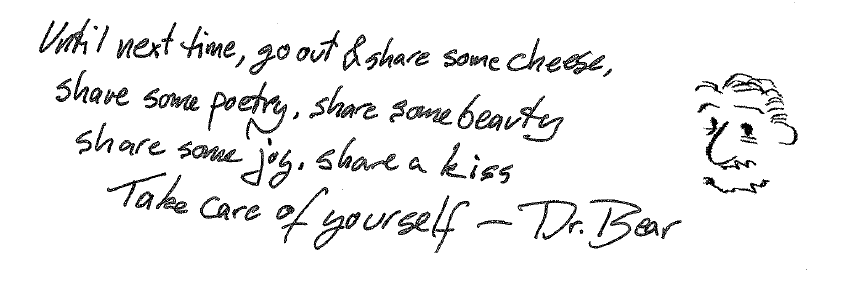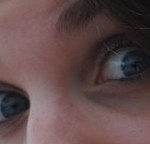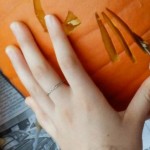 I’ve been thinking about beauty this past week, thanks, in part, to my friend Ben. This is a good time for this, because Tennessee is about to turn its most beautiful, so I am sitting behind an abandoned restaurant, listening to, feeling the spray from, and watching an old fountain, watching the sun play, and thinking about beauty.
I’ve been thinking about beauty this past week, thanks, in part, to my friend Ben. This is a good time for this, because Tennessee is about to turn its most beautiful, so I am sitting behind an abandoned restaurant, listening to, feeling the spray from, and watching an old fountain, watching the sun play, and thinking about beauty.
There are a lot of theories out there, and then there are people who create beauty and people who enjoy beauty without any needed assistance from philosophers like me.
Among the theories, a powerful one is what I will call the Classical Ideal. It finds a high expression in Plato, but also owes a great deal to Pythagoras, and, outside of them both, animated ancient art. For these lovers of beauty, beauty is an ideal, a perfection, something we try to capture in art, we aim for in art, and which we cannot find in nature. We have an innate sense of what this ideal beauty would be, and we consider things beautiful to the extent that they come close to reflecting this ideal. This ideal is closely tied to balance and proportion and harmony, and can, in many cases be expressed mathematically. The sculptures of Polykleitos are an example of this; in a pleasing, beautiful face, the distance between the eyes is a set proportion to the face as a whole, and a certain position in the face, and the length of the body, the size of the chest, the width of the hips, the length of the legs…
It finds a high expression in Plato, but also owes a great deal to Pythagoras, and, outside of them both, animated ancient art. For these lovers of beauty, beauty is an ideal, a perfection, something we try to capture in art, we aim for in art, and which we cannot find in nature. We have an innate sense of what this ideal beauty would be, and we consider things beautiful to the extent that they come close to reflecting this ideal. This ideal is closely tied to balance and proportion and harmony, and can, in many cases be expressed mathematically. The sculptures of Polykleitos are an example of this; in a pleasing, beautiful face, the distance between the eyes is a set proportion to the face as a whole, and a certain position in the face, and the length of the body, the size of the chest, the width of the hips, the length of the legs…
Oh, Mathematics: you naughty bugger!
 By contrast to this calm balance of rules, the Romantic view of art aims precisely to tear loose, to suggest power and passion that is not even expressible in conscious thought, let alone within the surgical precision of math. The wild emotion of beauty in art or in nature takes us beyond the calm, placid, everyday, into the cosmos as a whole, the mind of God, or our own subconscious.
By contrast to this calm balance of rules, the Romantic view of art aims precisely to tear loose, to suggest power and passion that is not even expressible in conscious thought, let alone within the surgical precision of math. The wild emotion of beauty in art or in nature takes us beyond the calm, placid, everyday, into the cosmos as a whole, the mind of God, or our own subconscious.
I’m not sure which of those is bigger, or which of those is darker; my subconscious, however, requires less storage space.
I find beauty in the cool, crisp, rational lines of Greek architecture, and I also find beauty in the stormy passionate upheaval of Wagner’s Liebestod. They are both beautiful, but beautiful differently.
What, then, is beauty? What makes both of these beautiful, as well as “an exhilarating sunset, an expressive smile, a tranquil view,” or good company, or rest at the end of the day, or even, Joe Frogger ginger cookies?
I don’t know what it is in the objects themselves that makes them beautiful, although somehow it seems to be in the object itself, so that we can expect it to have that effect upon others. Beauty affects us deeply in the mind, so that we can talk about balance or about movement, or about color or about tone. It also affects us deeply in the heart, and can move us to tears or euphoria, to laughter or to passion.
However, it affects us through the senses; beauty is not a thing of the mind or of the emotions, but something we experience through sight and sound and touch, perhaps even through smell and taste and other senses.
A rose looks beautiful–the gradual fading of colors into different shades, the gentle folding and unfolding petals turning in upon each other, turning out towards the world, circling into a tight center.
A rose smells beautiful–the soft clean smell of the lazy, sunlit life within the folds of the petals, a sweetness more complex than sugar, a smell perfumists try to capture, but which becomes cloying and sickening if imitated.
A rose feels beautiful–the pink, red or white surfaces so soft to the touch, resisting yet falling back, so soft to each caress, so milky smooth, and yet so fragile.
Certainly, a rose can represent or be a simile or be a symbol of something else, but its beauty is not suggestive of something absent, but of the present, of the here and now. The beauty of the rose acts upon our senses–it itself is beautiful, and this beauty strikes us to the core.
Beauty may seem like it has a purpose, but it can be an end in itself, because it really is one of the few worthwhile ends we can find.








